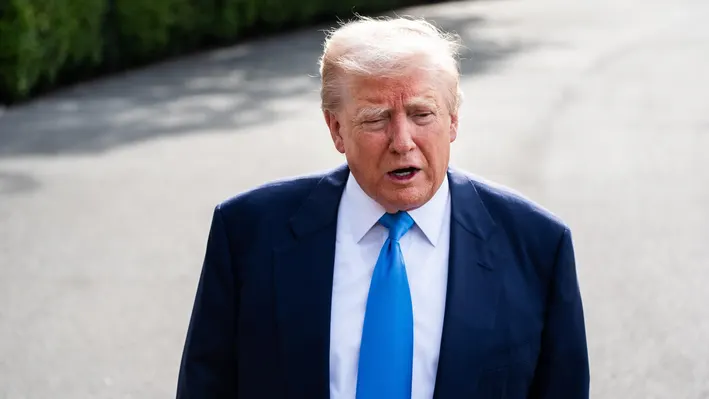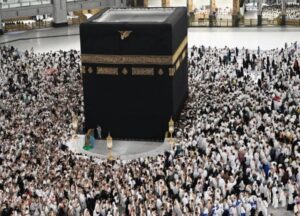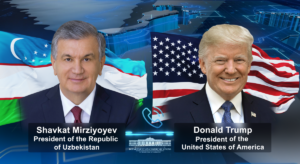Trump Highlights Saudi Arabia’s Economic Transformation, Hails Vision 2030 Progress

Riyadh, The Gulf Observer: Former U.S. President Donald Trump has commended Saudi Arabia’s economic diversification efforts, stating that within a few years, half of the Kingdom’s income will derive from non-oil sources. His remarks came during a recent televised interview with Fox News following his visit to Saudi Arabia, Qatar, and the United Arab Emirates.
Trump’s comments align with the newly released annual Vision 2030 report, which reveals that non-oil activities contributed 51 percent to Saudi Arabia’s real GDP in 2024 — the highest level to date. The report, compiled by the Ministry of Economy and Planning using data from the General Authority for Statistics (GASTAT), attributes the achievement to ongoing reforms under Vision 2030.
“Saudi Arabia is undergoing a historic transformation, and the results are already visible. Their commitment to moving beyond oil is real and strategic,” Trump noted in the interview.
The former president also criticized the current U.S. administration’s approach to the Middle East, stating, “The Middle East is a wonderful region, and Biden has not handled it well.”
Trump concluded his three-nation tour in the UAE last Friday, a visit marked by major economic developments and strategic partnerships. While in Saudi Arabia, he witnessed the launch of the Kingdom’s new artificial intelligence initiative, Humain, part of the broader Vision 2030 framework aimed at building a knowledge-driven, post-oil economy.
The trip featured high-level engagements and culminated in the signing of a Strategic Economic Partnership between Trump and Crown Prince Mohammed bin Salman. The agreement includes Saudi investments in U.S. AI data centers, clean energy infrastructure, and transformative technologies.
The deals signed with Riyadh, Doha, and Abu Dhabi amounted to approximately $600 billion, spanning sectors such as energy, defense, technology, and mining. A separate $80 billion was pledged by leading tech firms — including Google, Uber, Salesforce, AMD, and Saudi Arabia’s DataVolt — for joint development of next-generation technologies in both the United States and the Kingdom.
According to the White House, several large-scale American-led projects are now underway in Saudi Arabia, including King Salman International Airport, King Salman Park, The Vault, and Qiddiya City. The U.S. administration projects these developments will generate $2 billion in American service exports.
Trump’s visit, marked by robust economic diplomacy, comes at a time when regional power dynamics are shifting. Alongside the economic agenda, the former president made headlines by lifting longstanding sanctions on Syria, issuing a stern warning to Iran, and downplaying ongoing peace negotiations between Ukraine and Russia.
Observers see the visit as a reaffirmation of U.S.-Gulf cooperation, particularly on strategic investments and technological innovation, while signaling potential shifts in American foreign policy priorities.


